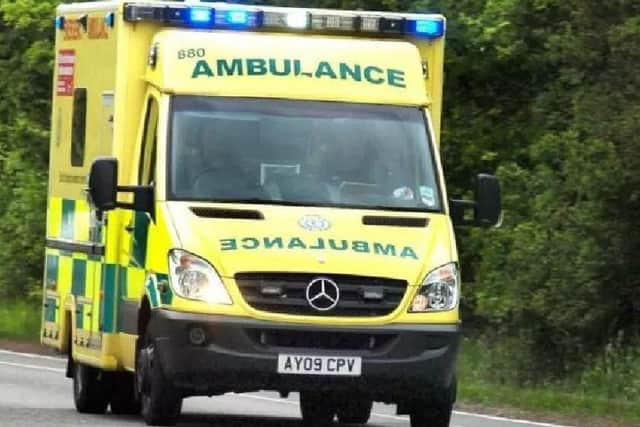Ambulance diverted en-route from Bedford woman's fatal poisoning to attend higher priority call
and live on Freeview channel 276
Helen Sheath, 33, died after ingesting a poisonous substance on August 20, 2018.
Following Ms Sheath's inquest, the senior coroner for Bedfordshire recorded three concerns in relation to East of England Ambulance Service's (EEA) handling of two 999 calls made by Ms Sheath's father on the evening of her death.
Advertisement
Hide AdAdvertisement
Hide AdThe service has been issued with a regulation 28 report, aimed at preventing similar deaths in future.


Senior coroner Emma Whitting wrote to EEA: "In my opinion, action should be taken to prevent future deaths and I believe you have the power to take such action."
It emerged that on the evening of Ms Sheath's death, her father first called an ambulance at 6.20pm after she locked herself in a bathroom and was threatening to self-harm.
The call handler placed the call as a category 3 priority, which the coroner questioned based upon Ms Sheath's suicidal history.
Advertisement
Hide AdAdvertisement
Hide AdA double-staffed ambulance was sent to Ms Sheath's address ten minutes later, however it was diverted en-route in favour of a higher priority emergency call.
A second 999 call was then made by the victim's father at 6.48pm, nearly half an hour after the first call, which was selected as category 2.
Due to the lack of available ambulances, a rapid response vehicle arrived at 7.05pm, followed by the mental health triage team six minutes later. An ambulance finally reached the scene at 7.25pm.
Ms Sheath was admitted to Bedford Hospital but, despite treatment, her death was confirmed there at 8.25pm.
Advertisement
Hide AdAdvertisement
Hide AdThe coroner wrote: "A category 3 call is for patients who have potentially urgent conditions that are not life threatening.
"Yet Helen had a history of suicide ideation and her father was unable to tell, being on the other side of the locked door, whether the substance had been taken or not.
"If the first call had been coded as a category 2, it seems likely that the rapid response vehicle, mental health street triage team and even possibly the original double-staffed ambulance would have arrived on scene much earlier... which could potentially have altered the outcome."
The coroner also noted that the community mental health team had been alerted to Ms Sheath's threats to harm herself and had visited her home earlier that afternoon.
Advertisement
Hide AdAdvertisement
Hide AdMrs Whitting wrote: "They left before being able to gain access, even though a family member was due to attend later with a key.
"Although their continued presence at the property would not necessarily have avoided the fatal outcome, it could potentially have done so."
NHS East London Foundation Trust, responsible for mental health services in the area, was issued with a copy of the regulation 28 report although the mental health team's actions are not part of the coroner's official concerns.
The report has also been circulated to the Emergency Call Prioritisation Advisory Group (ECPAG), Association of Ambulance Chief Executives and the National Association of Ambulance Medical Directors.
Advertisement
Hide AdAdvertisement
Hide AdAn East of England Ambulance Service Trust spokesman said: “The Trust wishes to reiterate its sincere condolences to the family of Helen Sheath.
“An audit of the case found the calls were categorised correctly in line with the nationally mandated 999 call handling process.
"However, we acknowledge the coroner’s preventing future deaths report and are fully committed to working closely with national groups to ensure lessons are learned.”